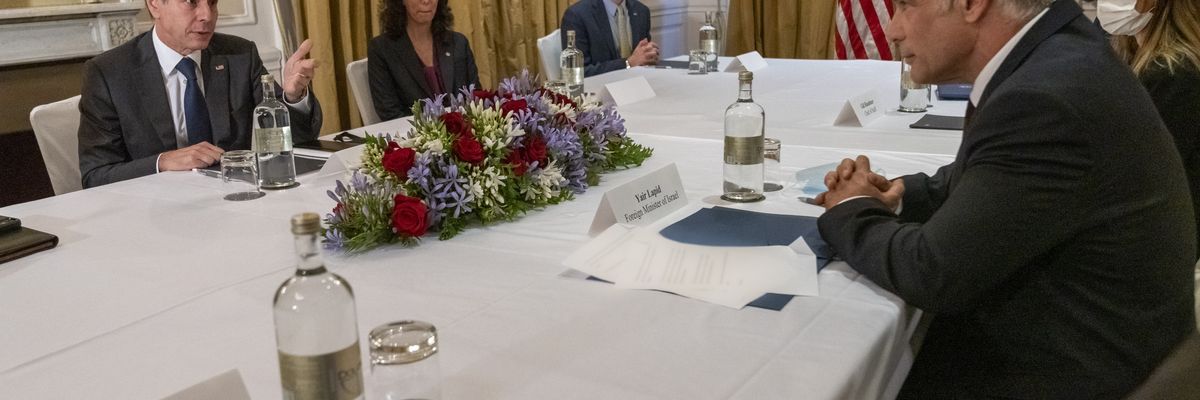The head of Israel’s military intelligence agency, Maj. Gen. Aharon Haliva, has said that the revival of the Iran nuclear agreement would be better for Israel than if it were to be allowed to collapse entirely.
Haliva reportedly told ministers during a recent Security Cabinet meeting “that a deal in Vienna would serve Israel’s interests by providing increased certainty about the limitations on Iran's nuclear program, and it would buy more time for Israel to prepare for escalation scenarios.”
The Israeli government under former Prime Minister Benjamin Netanyahu campaigned vigorously for Donald Trump to pull out of the deal. But now, an increasing number of current and former Israeli security officials are quietly coming out of the woodwork to acknowledge what a disaster that position has been for Israel — particularly now that Iran’s nuclear program has only grown since Trump’s withdrawal in 2018 — and call for the restoration of the JCPOA.
Ministers at the same meeting also agreed that Israel should not publicly attack the Biden administration should a deal to restore the nuclear agreement be reached, with Foreign Minister Yair Lapid reportedly warning “that such public attacks could seriously damage the relationship with the administration.”
















